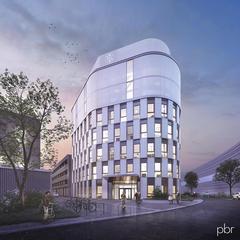URL: https://www.desy.de/news/news_search/index_eng.html
Breadcrumb Navigation
DESY News: Foundation stone laying ceremony for new accelerator centre
News
News from the DESY research centre
Foundation stone laying ceremony for new accelerator centre
CAST will provide 2400 square meters of office space, meeting rooms and an accelerator control room in the middle of the campus to about 240 employees from DESY’s accelerator division and open in 2026. The new research building includes meeting areas to foster interaction to promote everyday encounters and the spontaneous exchange of knowledge. A special highlight for visitors: from a separate room, they will be able to look directly into the heart of the building - the accelerator control room - and feel the “DESY pulse”. This is where researchers, engineers and technicians work together to control the operation of DESY's accelerators safely and efficiently. CAST will open its’ doors in the summer of 2026 to employees and will be at the same time a meeting place for guest researchers and visitors.

Visualisierung CAST, Bild: pbr, DESY
The new centre will tower over many of the surrounding buildings, being seven storeys high, and provide an unobstructed view of the campus and the emerging Science City Hamburg Bahrenfeld. “CAST illustrates how important accelerator technologies are for Hamburg as science location. This is where we plan and control the X-ray light sources that define Science City Hamburg Bahrenfeld,” explains Helmut Dosch, Chairman of the DESY Directorate.
The new CAST building is estimated to cost 26 million euros, 90 percent of which is funded by the Federal Ministry of Education and Research (BMBF) and 10 percent by the Free and Hanseatic City of Hamburg.



